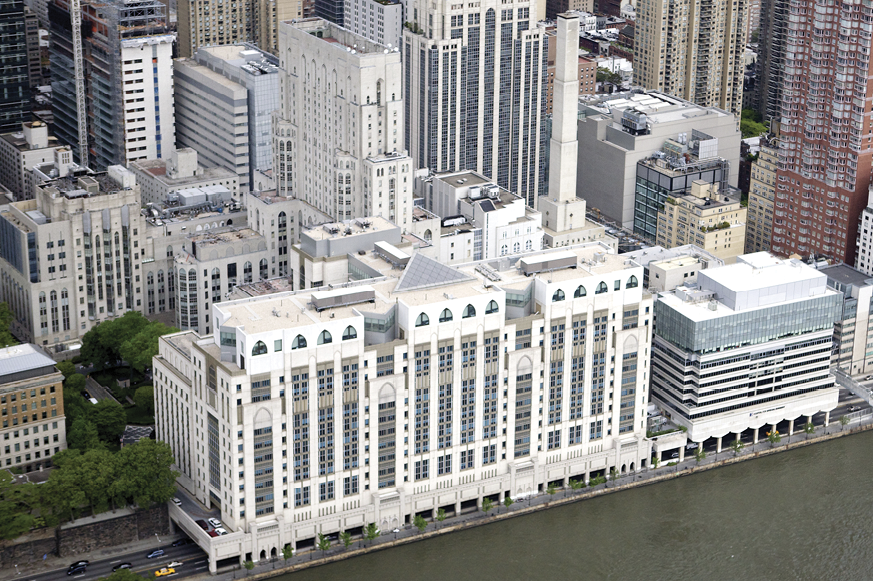- Home
- Media Kit
- MediaJet
- Current Issue
- Past Issues
- Ad Specs-Submission
- Reprints (PDF)
- Photo Specifications (PDF)
- Contact Us
- PRIVACY POLICY
- TERMS OF USE
![]()
ONLINE
![]()
ONLINE

Transforming Healthcare
Editors’ Note
Dr. Brian Donley was named Executive Vice President and Chief Operating Officer of NewYork-Presbyterian effective January 9, 2023. He joins from Cleveland Clinic, where he most recently served as chief executive officer of Cleveland Clinic London. Donley has extensive expertise in clinical medicine and hospital operations. He joined Cleveland Clinic as an orthopedic surgeon in 1996, and held numerous leadership positions within the health system, including Chief of the Clinical Enterprise. Previously, he served as President of the Cleveland Clinic regional hospitals and family health centers and as Vice Chair of the Department of Orthopaedic Surgery. In his most recent position as CEO of Cleveland Clinic London, Donley led the development and opening of Cleveland Clinic’s first hospital in Europe. He served as a professor of surgery at the Cleveland Clinic Lerner College of Medicine and fellow of the Royal College of Surgeons, England. Donley attended the University of Notre Dame, graduating Phi Beta Kappa. He graduated with distinction from the University of Michigan Medical School and completed his residency in orthopedic surgery at the University of Michigan. He also attended Harvard Business School, completing the Advanced Management Program.
Institution Brief
Located in New York City, NewYork-Presbyterian (NYP.org) is affiliated with two of the nation’s leading medical colleges, Weill Cornell Medicine and Columbia University Vagelos College of Physicians and Surgeons. NewYork-Presbyterian provides state-of-the-art inpatient, ambulatory, and preventive care in all areas of medicine, and is committed to excellence in patient care, education, research, and community service at ten hospital campuses: NewYork-Presbyterian/Weill Cornell Medical Center, NewYork-Presbyterian/Columbia University Irving Medical Center, NewYork-Presbyterian Morgan Stanley Children’s Hospital, NewYork-Presbyterian Allen Hospital, NewYork-Presbyterian Westchester Behavioral Health Center, NewYork-Presbyterian Lower Manhattan Hospital, NewYork-Presbyterian Westchester in Bronxville, NewYork-Presbyterian Brooklyn Methodist Hospital, NewYork-Presbyterian Hudson Valley Hospital, and NewYork-Presbyterian Queens.

NewYork-Presbyterian/Weill Cornell Medical Center
What excited you about the opportunity to join NewYork-Presbyterian and made you feel it was the right fit?
Prior to my new role as COO of NewYork-Presbyterian, I had a wonderful experience as CEO of Cleveland Clinic London where I worked with an incredible team to build a 184-bed hospital from scratch in central London through the pandemic. I learned many lessons from this experience and once the hospital was successfully opened and running, it was time to think about my next chapter.
I knew my family and I were ready to come back to the United States, and I wanted to join a team with values similar to mine and with a commitment to excellence. It was also very important to have the opportunity to maximize my impact for patients and for healthcare workers. NewYork-Presbyterian is second to none in being that ideal place. In my first nine months, I am even more assured of my decision as I support one of the nation’s leading academic healthcare systems committed to caring for one of the best and most diverse populations in the world.
How valuable has your experience as an orthopedic surgeon and your time working in administration been for you in this new position?
I’m very thankful to have experienced the best of both worlds. As an academic orthopedic surgeon, commitment, dedication, and passion along with surgical expertise are essential, but a compassionate approach to patient care is critical. All medical providers must listen to patients and their loved ones to deliver the most important thing we can provide in healthcare to our patients, which is empathy. Both as a surgeon and a physician leader, successfully managing and leading teams is an essential skill set in my role. In addition, the many lessons learned from my progressive experiences as Department Vice Chair, Hospital President, and Chief of Clinical Operations for Cleveland Clinic in North America, prior to my role in London, are extremely valuable in this new position.
Whether during my time as a surgeon or as an administrator, I have also leaned into leading with authenticity to instill confidence; promoting a flexible outlook to exploring a variety of solutions to a challenge; maintaining a sense of realism for what’s possible; and a mindset of continuous learning.
Regardless of the role, I have always connected my experience and outlook to a premise that Aristotle was known for: People want two things; they want meaning and purpose in life, and opportunities to learn and grow.

NewYork-Presbyterian/Columbia University Irving Medical Center
How do you define the role of Chief Operating Officer, and how will you focus your efforts in the role?
In the role as Chief Operating Officer, I am ultimately responsible for directing the strategy and operations of NewYork-Presbyterian. As mentioned, I was eager to work for an institution committed to excellence for its patients and an organization that navigates complexity on a regular basis. It has been a fascinating and rewarding experience since I joined in January; not only based on the size of our system, but also because NewYork-Presbyterian is affiliated with two renowned medical schools – Weill Cornell Medicine and Columbia University Vagelos College of Physicians and Surgeons. With these world-class partners, we are uniquely positioned to find solutions and mobilize teams to lead the nation in medical education, groundbreaking research, and innovative, patient-centered clinical care.
How we care for our patient population to live healthy lives is a top priority for me. That said, caring for our workforce is also an equal top priority for me. The two are, of course, connected. Our staff, regardless of role, must have holistic support and a sense of belonging to a strong and positive culture. Their resiliency is important, so that they can use their energy to provide our patients with the best possible care.
I am focused on enhancing our patient-centered culture, bringing our strategic vision to life, and guiding teams with empathy as we prioritize culture, quality, patient experience, and innovation.
Will you discuss NewYork-Presbyterian’s patient-centered strategic vision across the enterprise?
Implementing our strategic vision is an initiative that has been very important to me since I joined the NewYork-Presbyterian team, and I value the opportunity to drive towards our north star. The patient is at the center of everything we do when our talented, integrated workforce provides world-class care from the everyday to the extraordinary. From exceptional patient-first care to groundbreaking medical advancements, NewYork-Presbyterian is committed to transforming healthcare for the betterment of all communities to create a healthier tomorrow for all.
What do you feel have been the keys to NewYork-Presbyterian’s strength and leadership in the industry?
I was attracted to NewYork-Presbyterian because it is a world-class institution with incredible talent and leadership in education, research, innovation, clinical care, and patient experience. We are the only health system in the United States to have two academic medical school partners and this provides such a distinct advantage for the amazing care we’re able to provide.
Notably, our work in health equity continues to advance since we launched the Dalio Center for Health Justice in October 2020 to ensure every single person can expect and have equal access to a single standard of equitable care by better understanding and addressing the social determinants of health. I am also very proud of the work we do in mental health, from children to adults, a growing need exacerbated by the events of the past few years. We are committed to leveraging our resources to be an agent of change to address the root cause of the growing challenges with mental health. Ultimately, the key to NewYork-Presbyterian is its culture that is centered on a rock-solid value system starting with our CEO.
How important is it for NewYork-Presbyterian to build a diverse and inclusive workforce?
The reach of NewYork-Presbyterian is notable – our network includes 10 hospitals, more than 200 primary and specialty care clinics and medical practices, along with our comprehensive suite of telehealth services across the Greater New York area. This means that we reach and treat communities of all races, genders, ethnicities, cultures, ages, and sexual orientations. In order to provide the best possible care, our workforce must equally reflect this diversity and we must foster a community of belonging.
We are steadfast in our commitment to diverse hiring so our workforce represents the communities we serve, maintaining a diverse pipeline of candidates, standardizing all job application processes, and importantly, reskilling and upskilling our current workforce so they can continue to build long-term careers with NewYork-Presbyterian and pursue opportunities to learn and grow across this incredible health system.
What do you see as NewYork-Presbyterian’s responsibility to be engaged in the communities it serves?
With 10 campuses across New York City’s five boroughs, Westchester, and the Hudson Valley, combined with a telehealth program that was implemented long before COVID-19 impacted the state, we’ve made a concerted effort to make sure people know they have plenty of options to access care when, where, and how they need it through a seamless system that prioritizes patients first. Not only do patients expect personalized care, but they also expect care that is convenient and easily accessible.
NewYork-Presbyterian partners with community-based hospital and academic organizations to positively impact the health and well-being of children, adolescents, and adults through innovative population health initiatives, care provider training experiences, scholarships, and research. Our partnerships with community-based organizations and health and human services agencies support initiatives that empower individuals and families to promote health and wellness; better navigate local systems of care, and local resources; improve school readiness and academic achievement; and ultimately improve quality of life. Together with like-minded community-based organizations, we are striving to improve the overall health of the communities we serve.
What advice do you offer to young people interested in pursuing a career in medicine?
For today’s generation interested in pursuing a career in medicine, I cannot overstate how fulfilling this path is from both a professional and personal perspective. It is the greatest privilege to have the opportunity, in our one shared humanity, to help others at their greatest time of need. The impact you can have on someone’s life is remarkable. However, it’s hard work and you have to be committed, driven, passionate, curious, humble, and most importantly – empathetic. What differentiates great from good is empathy, whether it’s holding someone’s hand, offering a kind word, listening to understand, or providing a smile.![]()